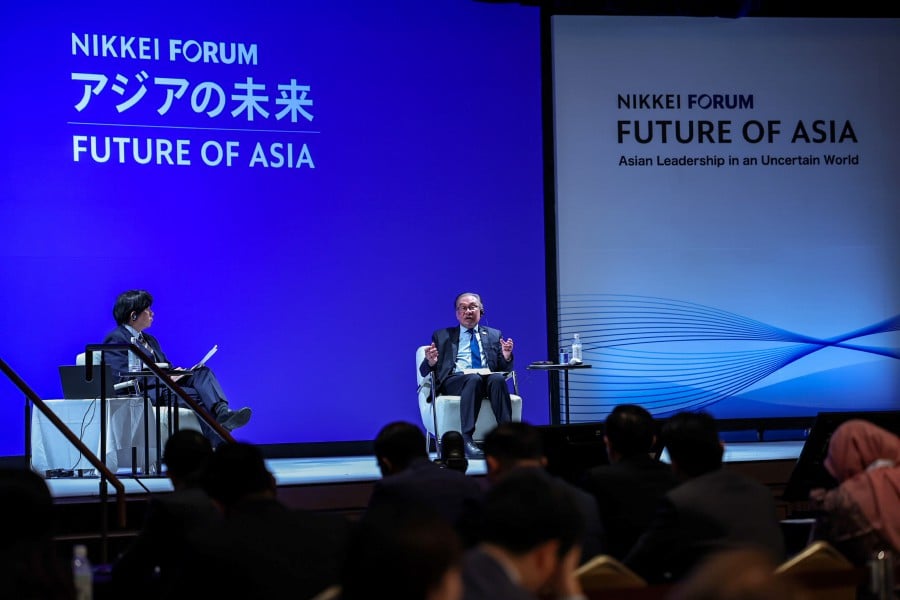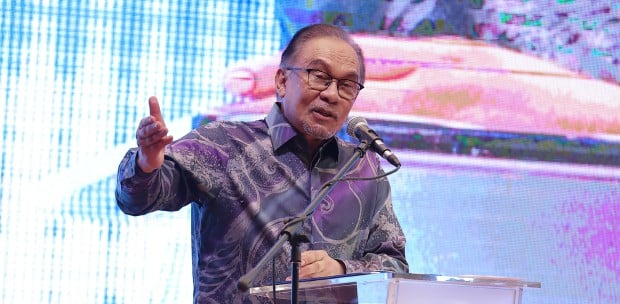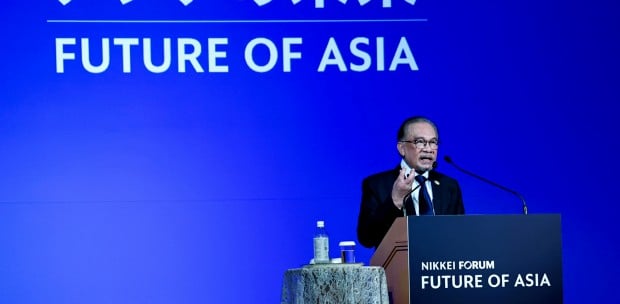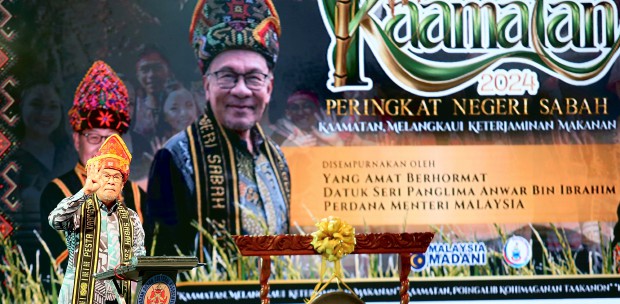TOKYO: Prime Minister Datuk Seri Anwar Ibrahim has stressed that Malaysia will not be part of any "Cold War" mindset amid United States-China tensions, saying the country is "fiercely neutral".
"Nobody, no country should dictate (what another country does)," he said at the Nikkei Forum 29th Future of Asia.
"We decide what is best for our country," said Anwar in response to a question on Malaysia's position on the increasing competition between the US and China during a Q&A session.
Anwar said the US has been a traditional ally to Malaysia since independence in 1957.
"(And) I've said cumulatively, the US is still the largest trading partner and investor in Malaysia," Anwar said, adding the US continues to be very aggressive in promoting investments.
"And all the big players in the US are welcomed (to invest in Malaysia)."
At the same time, Anwar said Malaysia recognised China's growing economic and military might.
"While I maintain excellent relations with US, China, Japan and South Korea, I think for Malaysia, for the region, it is better to engage with China," he said, adding he does not have a "China-phobia" policy.
"Our hope is that China and the US can resolve their differences, and for the US to not remain too protective and respect competitiveness. But that's for their leaders and policymakers to decide."
Anwar said as far as Malaysia was concerned, it would continue to engage and consider the US as an important ally and enhance collaboration with China.
He described China as an important neighbour that was "too close and too strategic" to ignore.
On issues with China including territorial claims in the South China Sea, Anwar said there were forums to address such matters.
Similarly, he said, although Malaysia had issues with the US, this did not mean severing ties.
"When I assume the chairmanship of Asean, I will call for Asean countries to take a common position, so that multilaterally, we can engage with neighbours including China to find an amicable resolution to differences.





